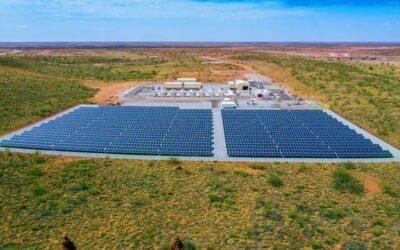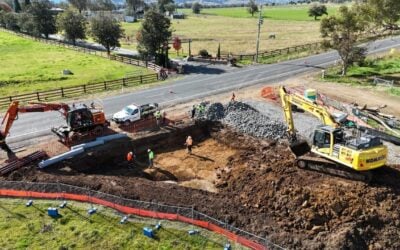Investing in energy storage batteries to “create a 21st century, decentralised energy system” could pave the way to a sustainable and subsidy-free future for solar in the UK, according to an influential former minister.
Greg Barker, formerly UK energy secretary - the top government job in policy-making for the sector – was often noted during his time in office for his encouragement of the solar industry. Now the president of UK industry group BPVA, Barker gave an interview to the BBC’s Radio 4 yesterday morning in which he appeared to slam the low evidence base used by his old Department of Energy and Climate Change (DECC) to inform proposed support-scheme changes.
Enjoy 12 months of exclusive analysis
- Regular insight and analysis of the industry’s biggest developments
- In-depth interviews with the industry’s leading figures
- Annual digital subscription to the PV Tech Power journal
- Discounts on Solar Media’s portfolio of events, in-person and virtual
These changes include a reduction of the feed-in tariff (FiT) for generated PV power of as much as 87%. Barker said in the interview that proposals would “kill the industry” in the UK and simply delay the attainment of grid parity for solar “quite unnecessarily”. In essence, Barker argued that the support schemes to date had accelerated deployment to the extent that the industry was now a victim of its own success. It was time to put the brakes on, he said, but not to the wholesale extent suggested by the forthcoming changes.
However, he stressed that as the policy changes, due to come into effect on 1 January, are only at the draft stage, he hoped the current energy secretary, Amber Rudd, might do “something pretty creative rather than just march down this current proposal, which would be pretty disastrous”.
Barker suggested that subsidies should be phased out by 2018, rather than spreading them thinly or “smearing” them over the period up to 2020, as is looking increasingly likely to be the case under the latest proposals.
Building a "21st Century, decentralised energy system" for the UK
While the threat to the immediate future of the solar industry is real, for many in the UK, it is also anathema that the government appears to favour continuing with the status quo of centralised power generation.
However, as has been told to PV Tech Storage recently from a number of sources including Dr Jill Cainey of the Electricity Storage Network, at a macro level, work is very much underway to investigate a migration towards more distributed networks – with storage integral to supplying the necessary flexibility of such systems.
According to Cainey, National Grid, which oversees the bulk of transmission networks in Britain has flagged up as a “red light” that there are regulatory barriers to the recognition of the value of energy storage in place. National Grid is formulating its annual 'Future energy scenarios' position document for next year, and last week Cainey and others attended workshops to help develop the report.
Additionally, the national electricity regulator, Ofgem, has produced its own reports over the past couple of weeks; one examining how to increase flexibility in the network – again with storage playing a crucial role – and another looking at how “non-traditional business models” could enable households and communities to participate in providing grid services, through measures including aggregated energy storage and demand response. Cainey explained that this would entail reconfiguring the role of distribution network operators (DNOs) into distribution system operators (DSOs) – making them the platform through which flexibility resources were aggregated and traded.
In Greg Barker’s interview this week, the former minister identified solar, in combination with storage, as the key part of such a migration. Barker argued for investment in rooftop solar-plus-storage in the last couple of years in which public money was in theory available, and also argued against the continued build out of large-scale solar.
“What I feel we should do is focus the subsidy that we have remaining in the pot on rooftop solar – on people’s homes and offices. We should end the subsidy for large-scale solar, those big, monster solar farms, and focus on how we can move to solar on people’s roofs that’s also linked to batteries on people’s homes and create a 21st century, decentralised energy system. If we did that, we could perhaps have a million installed on people’s homes by 2020.”
“We shouldn’t, at this stage of the game, grab defeat from the jaws of victory.”
PV Tech Storage and other Solar Media channels including the UK-focused Solar Power Portal are attending Solar Energy UK this week in Birmingham, England and will be reporting live from the event.
Additional reporting by Liam Stoker.
Former minister and now solar trade group president, Greg Barker. Image: DECC.






